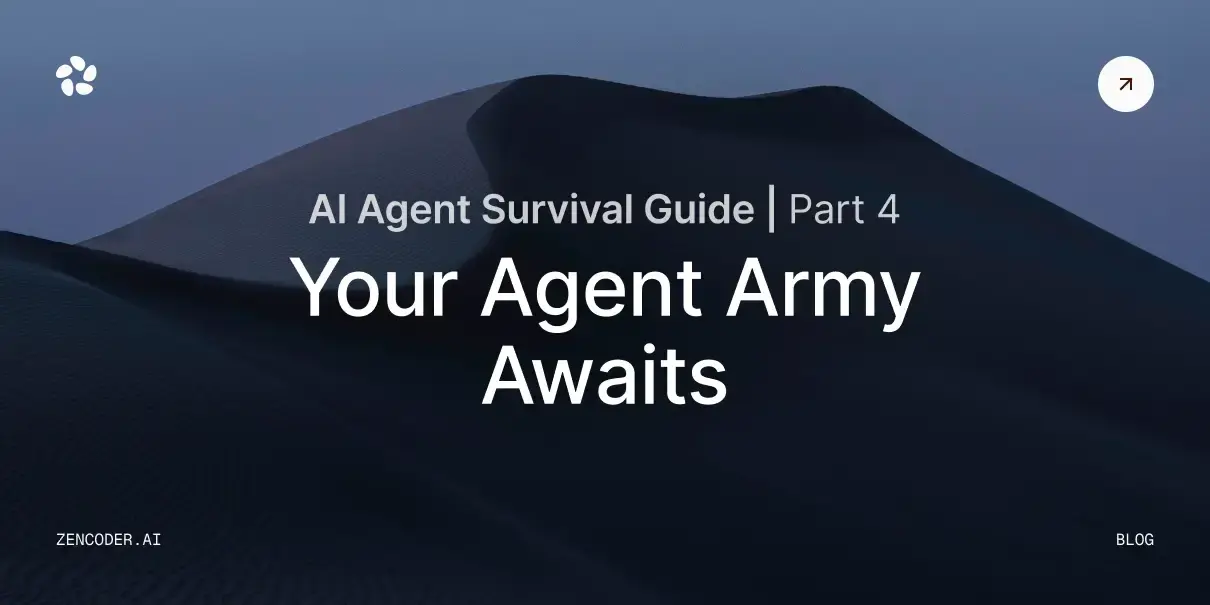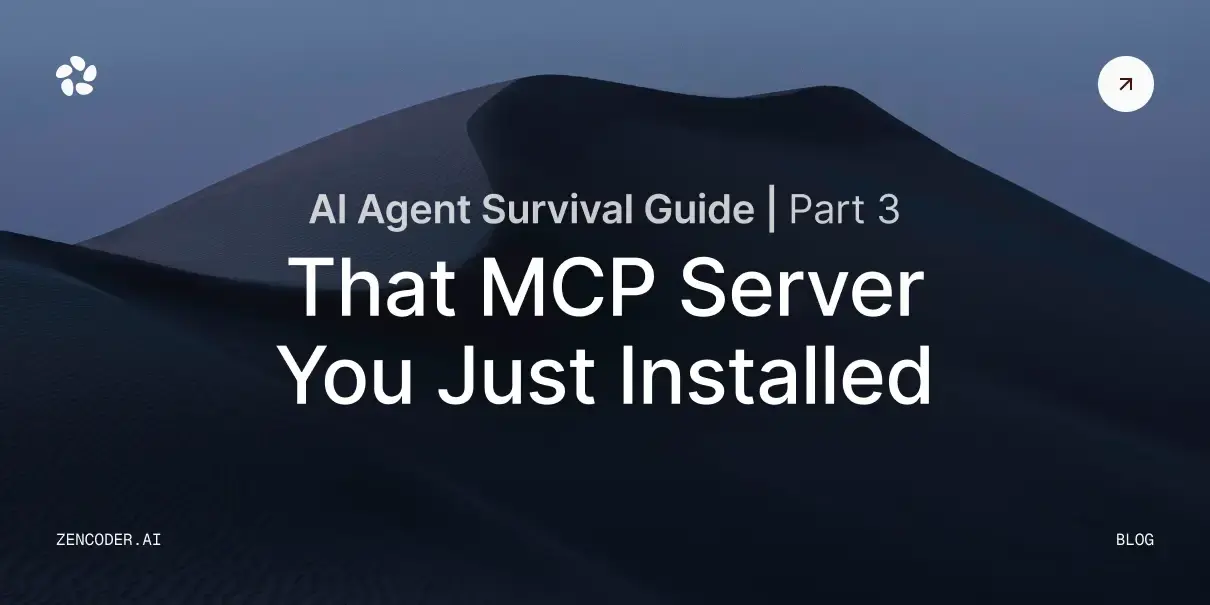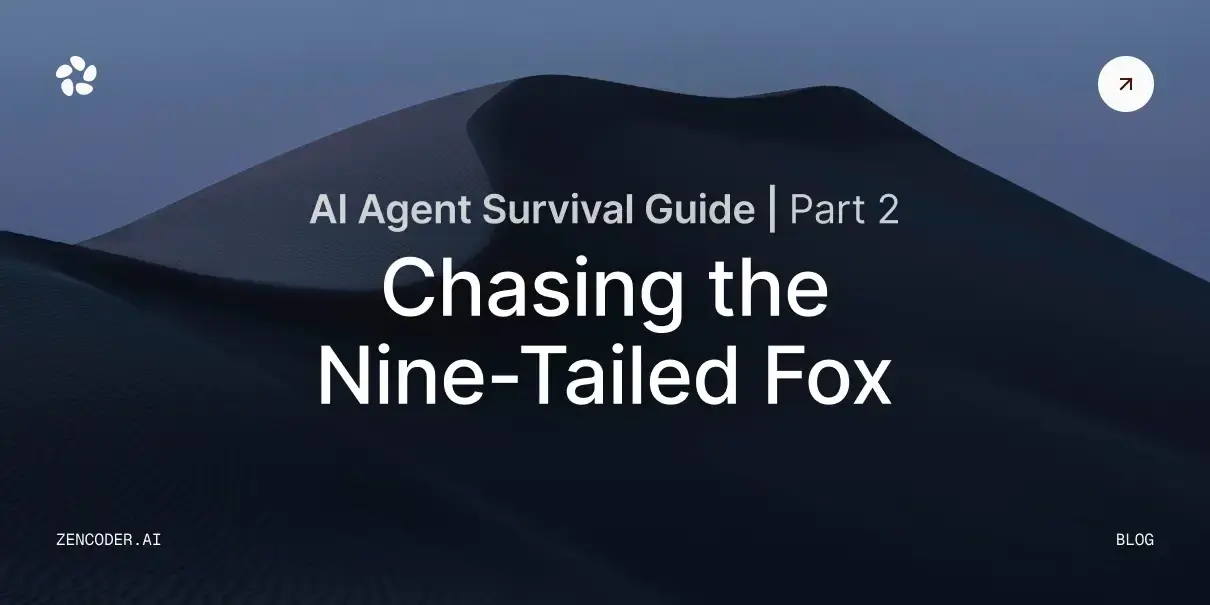Introduction to Repo Grokking
Repo Grokking is an advanced AI-powered process that comprehensively analyzes and understands entire code repositories. A term trademarked by Zencoder AI, repo grokking technology uses sophisticated algorithms to parse, interpret, and gain insights from large codebases. Repo Grokking has significant implications for various stages of the software development lifecycle, from initial coding to maintenance and optimization.
The process involves several key steps: repository cloning, file parsing, Abstract Syntax Tree (AST) generation, dependency mapping, and semantic analysis. These steps allow the AI to understand not just the syntax of the code, but also its intent and functionality. Repo Grokking leverages machine learning models, likely based on transformer architectures, trained on vast amounts of diverse code. These models can recognize common coding patterns, understand contextual relationships in code, process natural language in comments and docstrings, detect anomalies, and predict what code might be needed next.
The applications of Repo Grokking span across multiple areas of software development, enhancing efficiency, code quality, and developer productivity. Let's explore six key use cases where Repo Grokking demonstrates its value in real-world projects.
Use Case 1: Onboarding New Developers
Repo Grokking significantly accelerates the onboarding process for new team members by providing them with a comprehensive understanding of the codebase in a fraction of the time it would traditionally take.
When a new developer joins a project, Repo Grokking can generate a high-level overview of the codebase structure. This overview includes information about the directory hierarchy, file types, and configuration files. It also identifies the programming languages used in the project and analyzes the project's dependencies. This initial scan provides new developers with a bird's-eye view of the project, allowing them to quickly grasp its overall architecture.
Repo Grokking can also produce detailed documentation of key components and their interactions. By analyzing function calls, data flow, and module imports, it can create a map of how different parts of the codebase interact. This capability forms the backbone of an automated onboarding process, helping new developers understand the system's architecture without having to manually trace through thousands of lines of code.
For complex codebases, Repo Grokking can identify and explain critical sections of code. It can highlight core algorithms, important business logic, and frequently used utilities. This feature helps new developers focus on the most important parts of the codebase first, rather than getting lost in less critical details.
Repo Grokking tools often include features for exploring code history. They can summarize major changes over time, identify key contributors to different modules, and explain the evolution of important features. This historical context is invaluable for new developers trying to understand why certain design decisions were made.
To facilitate hands-on learning, Repo Grokking can generate interactive tutorials or coding exercises based on the actual project codebase. These exercises can guide new developers through typical tasks they'll encounter in the project, using real code examples from the repository.
Use Case 2: Code Reviews and Quality Assurance
Repo Grokking enhances the code review process by automating many aspects of code analysis, allowing human reviewers to focus on higher-level concerns.
Before a human review begins, with Repo Grokking developers can perform an initial pass over the code changes. It can identify potential bugs, style inconsistencies, and deviations from project coding standards. This pre-screening catches many common issues, reducing the burden on human reviewers and ensuring that simple mistakes are caught early.
By understanding the entire codebase, Repo Grokking can assess how new code fits into the existing system. It can flag potential integration issues, such as inconsistencies with established patterns or potential conflicts with other parts of the codebase. This context-aware analysis helps reviewers focus on system-level concerns that might be missed when reviewing code in isolation.
Repo Grokking can analyze code complexity metrics across the project. When new code is submitted for review, it can compare the complexity of the new code to project averages. If a new function or module is significantly more complex than similar components in the project, it can flag this for reviewer attention.
In projects with specific performance requirements, Repo Grokking can perform static analysis to identify potential performance issues. It can flag inefficient algorithms, unnecessary database queries, or code that may not scale well under load. This helps reviewers ensure that new code meets the project's performance standards.
Repo Grokking can check for proper error handling and edge case coverage. By analyzing the code's logic flows, it can identify scenarios that may not be properly handled and suggest additional error checks or exception handling.
For security-critical projects, Repo Grokking can perform preliminary security analysis. It can check for common vulnerabilities, such as SQL injection risks or improper input sanitization. While not a replacement for dedicated security audits, this feature helps catch obvious security issues early in the development process.
Use Case 3: Refactoring and Technical Debt Management
Repo Grokking plays a crucial role in identifying areas of the codebase that need refactoring and helping developers manage technical debt effectively.
By analyzing the entire codebase, Repo Grokking can identify duplicated code across different modules or files. It can suggest opportunities for creating shared utilities or consolidating similar functions. This helps reduce code duplication, making the codebase easier to maintain and update.
Repo Grokking can detect outdated coding patterns or use of deprecated APIs. It can suggest modern alternatives or highlight areas where the code could be updated to use newer, more efficient methods. This helps keep the codebase current and prevents the accumulation of technical debt due to outdated practices.
In large projects, Repo Grokking can analyze module dependencies and suggest improvements to the overall architecture. It might identify circular dependencies, overly coupled modules, or violations of layered architecture principles. These insights help developers make informed decisions about how to restructure the codebase for better maintainability.
Repo Grokking can track code complexity over time, identifying parts of the codebase that have become overly complex. It can suggest breaking down large functions or classes into smaller, more manageable units. This ongoing monitoring helps prevent gradual degradation of code quality.
For projects transitioning between major versions of a framework or language, Repo Grokking can assist in the migration process. It can identify uses of deprecated features and suggest equivalent patterns in the new version. This automated assistance significantly reduces the manual effort required for large-scale migrations.
Repo Grokking can analyze test coverage across the codebase. It can identify critical paths or complex logic that lack adequate test coverage, helping developers prioritize areas for writing new tests. This ensures that refactoring efforts are supported by a robust test suite.
Use Case 4: Bug Fixing and Debugging
Repo Grokking significantly enhances the bug fixing and debugging process by providing developers with comprehensive insights into the codebase and the context of errors.
When a bug report comes in, Repo Grokking can quickly scan the codebase to identify potential sources of the issue. By understanding the symptoms described in the bug report and analyzing the code's logic and data flow, it can narrow down the search area for developers, saving time in the initial investigation phase.
Repo Grokking can perform impact analysis when a bug is found. It can trace the effects of the buggy code through the system, identifying other areas that might be affected. This helps developers understand the full scope of the bug and ensure that all affected areas are properly fixed and tested.
For hard-to-reproduce bugs, Repo Grokking can analyze the code to suggest potential edge cases or unusual combinations of inputs that might trigger the bug. This can help in creating more comprehensive test cases to isolate and fix the issue.
In projects with extensive logging, Repo Grokking can correlate error logs with the corresponding code sections. When investigating a bug, it can quickly pull up relevant code based on error messages or stack traces, speeding up the debugging process.
Repo Grokking can assist in root cause analysis by tracing back through the code's history. It can identify when a bug was introduced, what changes were made around that time, and who made those changes. This historical context can be invaluable in understanding and fixing complex bugs.
For performance-related issues, Repo Grokking can analyze the code to identify potential bottlenecks. It can suggest areas where caching could be implemented, where database queries could be optimized, or where algorithms could be improved for better performance.
In large, legacy codebases, Repo Grokking can help developers navigate unfamiliar code when debugging. It can provide summaries of module functionality, explain complex algorithms, and highlight important code paths related to the bug being investigated.
Use Case 5: Continuous Integration and Deployment (CI/CD)
Repo Grokking can be seamlessly integrated into CI/CD pipelines, enhancing the automation and reliability of the software delivery process.
During the build process, Repo Grokking can perform comprehensive static code analysis. It can check for potential bugs, style violations, and other issues that might cause problems in production. This automated check ensures that only code meeting predefined quality standards progresses through the pipeline.
Repo Grokking can analyze the changes in each commit or pull request to assess their potential impact. It can flag high-risk changes that modify critical parts of the system, suggesting additional review or testing for these changes. This risk-based approach helps teams focus their QA efforts where they're most needed.
In projects with microservices architecture, Repo Grokking can analyze service dependencies and interactions. When changes are made to one service, it can identify other services that might be affected, ensuring that all necessary components are updated and tested together.
Repo Grokking can assist in generating release notes by analyzing the changes between versions. It can summarize new features, bug fixes, and other significant changes, making it easier to communicate updates to stakeholders and users.
For projects with specific compliance requirements, Repo Grokking can perform automated compliance checks as part of the CI/CD process. It can ensure that code meets necessary standards (like GDPR for data privacy or PCI DSS for payment systems) before it's deployed.
Repo Grokking can help optimize the CI/CD pipeline itself. By analyzing build logs and test results over time, it can identify common failure points or slow stages in the pipeline. This information can be used to refine and speed up the CI/CD process.
In canary deployments or A/B testing scenarios, Repo Grokking can assist in analyzing the differences between versions. It can highlight the specific changes being tested, helping teams quickly understand and compare different versions in production.
Use Case 6: Merging and Resolving Conflicts
Repo Grokking significantly eases the process of merging code and resolving conflicts in collaborative development environments.
When a merge conflict occurs, Repo Grokking can analyze the conflicting changes in the context of the entire codebase. It can provide developers with a clear explanation of how each conflicting change fits into the broader system, helping them make informed decisions about how to resolve the conflict.
Repo Grokking can suggest optimal resolutions for merge conflicts. By understanding the intent behind the conflicting changes and their impact on the rest of the codebase, it can propose solutions that preserve the functionality intended by both sets of changes.
In large projects with multiple teams, Repo Grokking can predict potential merge conflicts before they occur. By analyzing ongoing work across different branches, it can alert teams to areas of code that are being modified by multiple groups, allowing for proactive coordination to minimize conflicts.
When resolving conflicts in complex data structures or configuration files, Repo Grokking can provide a semantic understanding of the changes. Rather than just showing line-by-line differences, it can explain how the conflicting changes affect the structure and behavior of the data or configuration.
Repo Grokking can assist in code rebasing by analyzing the series of commits being rebased and their impact on the current state of the codebase. It can flag potential issues that might arise during the rebase process and suggest strategies for smooth integration.
For long-running feature branches, Repo Grokking can perform periodic "virtual merges" to assess how divergent the branch has become from the main codebase. It can provide reports on potential integration challenges, allowing teams to address issues incrementally rather than facing a massive merge at the end of development.
In projects using feature flags, Repo Grokking can assist in managing the integration of completed features. It can analyze the code changes associated with a feature flag and ensure that all necessary components are properly integrated when the flag is removed.
Conclusion
Repo Grokking represents a significant advancement in software development tools and practices. Its ability to comprehensively analyze and understand entire codebases opens up new possibilities for improving various aspects of the development lifecycle.
From accelerating the onboarding of new developers to enhancing code reviews, managing technical debt, streamlining debugging processes, improving CI/CD pipelines, and easing code merges, Repo Grokking touches almost every aspect of modern software development.
The key strength of Repo Grokking lies in its ability to provide context-aware insights. By understanding not just individual lines of code, but how they fit into the larger system, Repo Grokking enables developers to make more informed decisions and work more efficiently.
We can expect Repo Grokking to become an increasingly integral part of software development workflows. Future advancements may include more sophisticated predictive capabilities, deeper integration with development tools, and even more nuanced understanding of code semantics and developer intent.
However, it's important to note that while Repo Grokking is a powerful tool, it doesn't replace the need for skilled developers. Instead, it augments human capabilities, allowing developers to focus on higher-level problem-solving and creative tasks while the AI handles more routine analysis and information gathering.
As with any powerful tool, the effective use of Repo Grokking requires understanding its capabilities and limitations. Developers and teams that invest in learning how to best leverage Repo Grokking tools will likely find themselves at a significant advantage in managing complex software projects.
In conclusion, Repo Grokking is not just a technological innovation, but a shift in how we approach software development. By providing deep, context-aware understanding of codebases, it offers solutions to many common challenges in software development, from code quality and efficiency to team collaboration and project management. As the software industry continues to evolve, Repo Grokking is poised to play a crucial role in shaping the future of how we build and maintain software systems.



